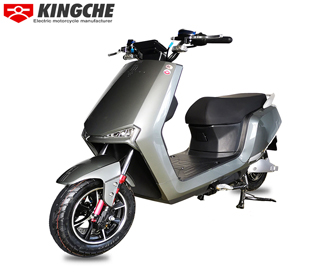Is It Worth Buying An Electric Scooter?
As cities become increasingly crowded and traffic conditions worsen, the old ways of commuting are becoming increasingly unsustainable. Commuters have been aware of this fact and have adopted new ride-sharing models to reduce their carbon footprint, lower transportation costs, and significantly reduce the time spent on the road. At the forefront of this commuting revolution, electric scooters solve many problems besides being fun to ride.
Electronic scooters offer many other benefits besides being easy to carry and requiring a little operation, but for many undecided people, the question remains: are they worth the cost of ownership? Can a scooter take the place of my car? Is it better to buy a bike? Below, we'll take a look at some of these questions to help you determine if an electric scooter is right for you.
Will the scooter replace my car?
Owning an electric scooter for sale is clearly a cost-effective mode of transportation. But the benefits of ownership go beyond economics. Electric scooters may not replace long-haul cars. But for most daily city commutes and short trips around town, it's more than enough.
So, while you might want to keep your car, you'll find yourself using it significantly less and having a much less impact on traffic congestion and greenhouse gas emissions. Not only that but if you rely mainly on the scooter to get to work, you can save time and money on parking. Whether it's a pricey monthly garage fee or a daily meter, the cost of parking isn't usually included in the annual commuting estimate, which means you'll save more than just gas.
Scooter or bike?
When it comes to buying a bike or scooter, you need to consider the fact that bicycles (especially e-bikes) are heavy, bulky, and difficult to store in a compact space. They are also more likely to be stolen than portable folding scooters, which you can take to your classroom or office and put under your desk, in your home closet, or under your bed. Biking is a great exercise, but you don't always want to exercise on the way to work. Non-moped bikes can mean sweaty summer commutes and more time to shower and change once you arrive at your destination.

On the other hand, electric scooters are small in size and light in weight, which not only means that short trips are easy and worry-free but also easy to carry electric scooters on subways and buses. More than any other form of transport, electric scooters can solve the "last mile" problem of commuters who live a little too far from public transport to walking comfortably. Electric scooters offer a level of commuting flexibility that no other vehicle can match, allowing cyclists to combine many different options to get the most out of the city.
This flexibility makes electric scooters particularly suited to the needs of a rapidly changing urban lifestyle. They provide maximum mobility with minimal cost and effort.
Electric scooters are rapidly gaining popularity as a means of commuting. Has great economic benefits, low fuel costs, and almost no maintenance, simple maintenance, and zero road tax. They are a convenient and trouble-free way to get around the city.
These mopeds are practical because they can be used on all city cycle lanes and can be parked in places where regular bikes can be parked. This makes them ideal for urban transport. With gasoline prices rising, parking fees, public transportation costs rising and traffic congestion in big cities increasing, electric pedal cycles have become a better option for daily commutes.



